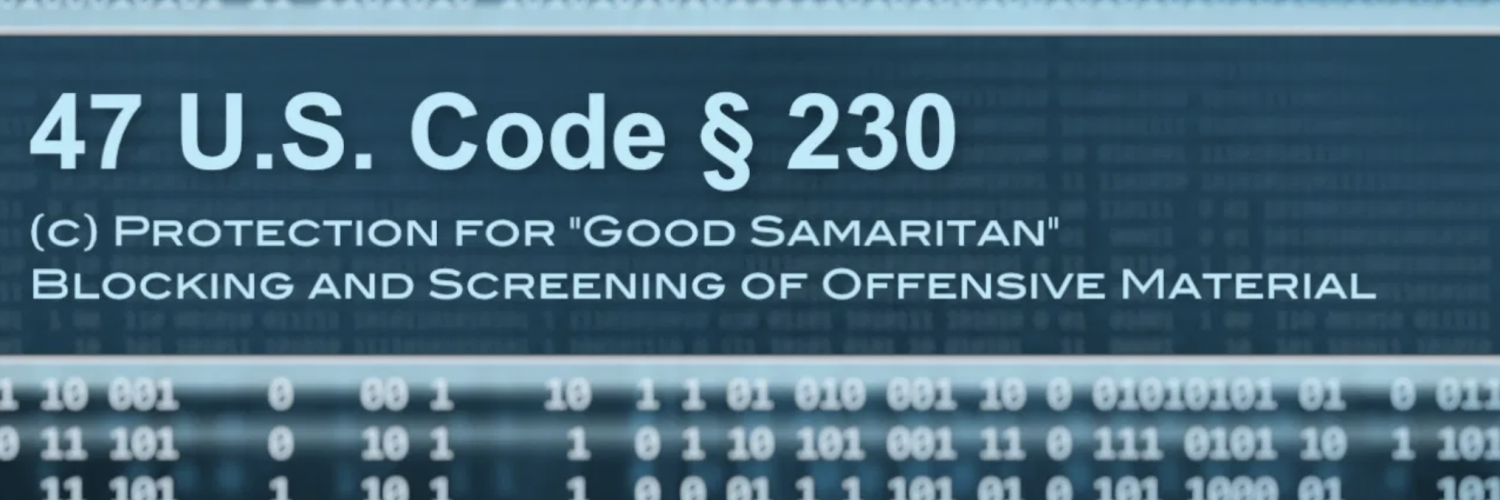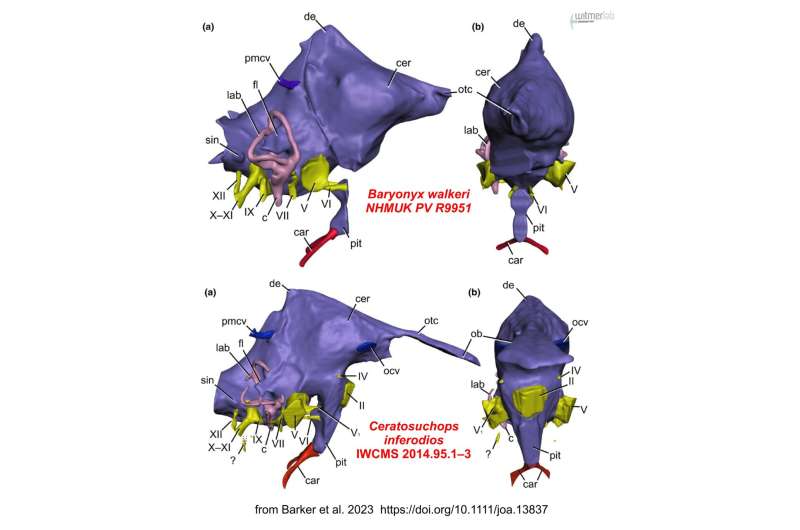FUTURES: Moderating Online Speech – The tightrope between a Ministry of Truth and tragedy of the commons
原作者:Sally Chase
by Sally Chase
就在国会议员们考虑下一步行动时,他们中间出现了三种解决方案。在其中一个就是国会选择全面否决《通信端正法》(Communications Decency Act)的230条款责任保护。社交媒体平台不再因为审核内容或未能审核内容而受到保护,所以它们走了传统出版商的老路,雇佣写手,印刷经过审核的文章。
As members of Congress considered their next move, the universe splintered into three possible timelines. In one, the prestigious body had opted for wholesale rejection of the Communications Decency Act’s Section 230 liability protections. Social media platforms were no longer protected for either moderating or failing to moderate content, so they went the way of traditional publishers, hiring writers and printing approved pieces.
第二种方案:只有审查内容的责任保护被抛弃。平台将很快陷入无政府状态,最尖酸刻薄的声音将会充斥虚拟世界,或者像通常情况那样,持久性的僵尸网络推动了讨论。攻击性、淫秽和剥削性的帖子大量出现,在上流社会离开了聊天区之后,广告商也迅速跟进。随着平台转向兜售数据和订阅来获取收入,它们的商业模式变得黯淡,犯罪团伙、毒品和武器交易以及人口贩运加剧了这一趋势。国会不得不就这个问题重新召开会议,因为这种解决方案显然是站不住脚的,且前进的道路不再明朗。
In timeline two, only the liability shield for moderating content was thrown out. Platforms quickly descended into anarchy, with the loudest, meanest voices, or, as was often the case, the most persistent bot networks, driving the discourse. Offensive, obscene, and exploitative posts abounded, and polite society politely left the chat, quickly followed by advertisers. As platforms turned to hawking data and subscriptions for revenue, their business model darkened, fueled by criminal gangs, drug and arms deals, and human trafficking. Congress had to reconvene on the issue, since the situation was obviously untenable, but the path forward was no longer clear.
第三种方案见证了国家真相部的崛起:只有对未能调节内容的责任保护被删除,因此自然需要一个负责仲裁可接受和不可接受内容的机构。关于该机构中政治代表权的适当平衡存在争论,但最终一方获胜,少数人的观点被边缘化。正当的科学辩论被噤声,任何关于不同世界观或不同原则的讨论也一样。“仇恨言论”和“虚假信息”的标签随处可见。没过多久,对政府当局的批评、私人宗教和当前流行话题之外的任何倡导都成了禁区。社会幸存了下来,但不再是我们所熟知的社会。
Timeline three saw the rise of a state Ministry of Truth. Only liability protections for failing to moderate content were removed, so naturally an agency responsible for arbiting acceptable and unacceptable content was needed. There were squabbles about the appropriate balance of political representation in the agency, but eventually one party won, and minority views were sidelined. Legitimate scientific debate was silenced, as was any discussion of alternative worldviews or divergent principles. Labels of “hate speech” and “misinformation” were applied with abandon. Before too long, criticism of governing authorities was off limits, along with private religion and any advocacy outside the topics currently in vogue. Society survived, but it was no longer society as we know it.
230条款有什么问题,人们建议国会做些什么?
What’s wrong with Section 230, and what have people proposed we do about it?
在一场又一场的听证会上,国会审查了对1996年责任保护法案的各种担忧,该法案目前保护Facebook、Twitter和YouTube等社交媒体平台,以防止“善意”试图控制在线内容。如果有害内容泄露出去,他们就不再负责,就像报纸一样。这些平台也不会受到删除“令人反感”内容的影响。
In hearing after hearing, Congress has reviewed a variety of concerns with the 1996 liability shield that at present protects social media platforms like Facebook, Twitter, and YouTube for “good faith” attempts to moderate online content. If harmful content slips through, they’re not responsible, like a newspaper might be. The platforms are also sheltered from the results of removing “objectionable” content.
根据国会、倡导组织和公众的说法,230条款的问题是多方面的。据称,大型科技公司倾向于左倾,不公平地审查保守派人士,而一些人声称,这些平台会把用户变成瘾君子和阴谋论者。适度机制交替地让可怕的内容溜走,并驱逐无害的内容。算法、政策和设计选择使歧视长期存在,压制儿童,使针对弱势群体成为可能,并在某些社区传播谎言。在一些人看来,最糟糕的是,大型科技公司将在这场鹬蚌之争中成为渔翁。
The problem, or rather, problems, with Section 230, according to Congress, advocacy organizations, and the general public, are manifold. Big Tech allegedly leans left, and unfairly censors conservatives, while some claim platforms turn users into addicts and conspiracy theorists. Moderation mechanisms alternately let horrific things slip through and banish innocuous content. Algorithms, policies, and design choices perpetuate discrimination, depress children, enable the targeting of vulnerable groups, and spread lies through certain communities. Worst of all, in the eyes of some, Big Tech profits off this mess.
保守派人士可能希望对审核内容的责任保护条款进行彻底修改或删除,称其违反了“诚信”条款,并指出大型科技公司的人口结构和捐款情况。他们说,像Twitter审查《New York Post》关于拜登夫妇的负面报道这样的例子具有代表性。然而,这种观点在逻辑上的极端似乎是不受欢迎的:这是一个完全不受节制的沼泽,可能危及社会的许多部门。
A conservative might want the liability shield for moderating content amended or removed entirely, calling foul on the “good faith” condition and pointing to Big Tech’s demographics and donations. Examples like Twitter’s censoring of the unfavorable New York Post story about the Bidens are representative, they say. The logical extreme of this position, however, is one that seems undesirable to many: an entirely unmoderated morass that might endanger many sectors of society.
自由派人士可能更愿意改变或取消那些保护那些无法删除所有不受欢迎内容的平台的保护措施。他们说,社交媒体是偏执、极端主义和边缘观点的温床,而1月6日发生的事件是现实世界的自然结果。这种立场的逻辑终点可能是创建一个有权设定适当内容标准的监管机构。但这个世界对很多人来说也没有吸引力。
Liberals might prefer to alter or do away with the protections that safeguard the platforms that fail to remove all undesirable content. Social media is a hotbed of bigotry, extremism, and fringe views, they say, and the events of January 6th are the natural real-world result. The logical end point of this stance could be the creation of a regulatory body with the power to set the standards of appropriate content. But this world, too, is unappealing to many.
一些人主张以调整代替戏剧性的改革。例如,Facebook的CEO Mark Zuckerberg希望定期发布透明报告,并对大型平台在审核内容方面的能力设定230保护条款。只要内容虚假,令人不适的内容比例保持在相对较低的水平,大型科技公司就不会受到影响。目前还不清楚这一提议是否会满足保守派或自由派的担忧,因为审查可能会继续不受检查,大量破坏性的帖子仍可能出现在人们的视野之中。
Some advocate for tweaks in place of dramatic overhauls. Facebook CEO Mark Zuckerberg, for example, would like to mandate regular transparency reports, and conditionalize 230 protections on big platforms’ ability to generally do a decent job at moderating content. As long as the percentage of false negatives remains relatively low, Big Tech would be off the hook. It’s not clear that this proposal would satisfy either conservative or liberal concerns, since censorship could go on unchecked, and large quantities of damaging posts could still appear in peoples’ timelines.
Twitter的Jack Dorsey提出了一项替代方案,该方案立足于设计而非监管改革。该平台的Bluesky倡议将使用开源解决方案来解决审核和透明度等问题。权力分配、暴民统治和科技素养等问题可能会给这个计划带来麻烦。
Twitter’s Jack Dorsey is pitching an alternative proposal, one grounded in design rather than regulatory reform. The platform’s Bluesky initiative would use open source solutions to tackle problems like moderation and transparency. Issues of power distribution, mob rule, and technological literacy could trouble this plan.
在最近的230条款听证会上,共和党众议员Tim Walberg提出了另一条出路。在天主教的社会教学中,有一项原则受到小政府保守派、欧盟和联合国的欢迎,称为辅助性原则,即责任一般应由尽可能低的组织层次承担。如果一个人能做某件事,那么家庭就不应该做。如果家庭可以,教会就不应该。如果社区组织可以,地方政府就不应该。如果地方政府可以,联邦政府就不应该。支持者说,这种模式使参与者有尊严,并赋予那些处于最佳位置的人解决给定问题的能力。Walberg呼吁家庭、社区和教育中心承担起使网络话语文明化的责任,尽管这些社会节点是否有能力解决像剥削儿童那样险恶的问题,或像虚假信息集团那样全球性的问题,还有待讨论。
At the most recent Section 230 hearing, Representative Tim Walberg (R-MI) offered yet another path forward. There is a principle in Catholic social teaching popular with small-government conservatives, the EU, and the UN called subsidiarity, which says responsibility should generally lie with the lowest possible organizational level. If an individual can do something, the family shouldn’t. If the family can, the church shouldn’t. If community organizations can, local government shouldn’t. If local government can, federal government shouldn’t. Advocates say this model dignifies participants, and empowers those best positioned to troubleshoot a given problem. Walberg called on households, communities, and centers of education to take up the mantle of civilizing online discourse, though whether these nodes of society are equipped to tackle problems as sinister as child exploitation or as global as disinformation rings is up for debate.
性格、人性、人际互动、美德梯度、经济、政治和意外后果等问题都在发挥作用,并处于危险之中。我们想成为什么样的人?好人在网上应该如何行动,并允许他人行动?我们希望鼓励或不鼓励什么样的交流?企业如何通过这些决策来坚持下去?各种利益如何持续下去?正确的改革有可能重振公共话语,并把分歧很大的党派拉回到同一张会议桌上。错误的举动可能会让我们走上一条了无希望的道路。
Questions of character, humanity, human interactions, virtue gradients, economics, politics, and unintended consequences are at play and at stake. Who do we want to be? How should good people act online, and allow others to act? What sort of exchanges do we want to encourage, or discourage? How can businesses persist through these decisions? How will various interests endure? The right reforms have the potential to re-invigorate public discourse, and bring wildly divergent parties back to the same table. The wrong moves could lead us down a dimmer path.
人们对社交媒体发展轨迹的乐观程度可能取决于他们对科技的总体看法。科技乐观主义者认为,科技发展通常对社会有益;从人类自由和幸福的角度来看,技术悲观主义者认为大多数创新带来的后果更加暗淡。技术决定论者说,如果某样东西能被发明出来,那么它最终就会被发明出来;如果发明可以被某种方式使用,那么它最终就会被某种方式使用。那些采用批判性方法的人认为,在采用每个新实例之前,都应该仔细评估。
How optimistic one is about the trajectory of social media may depend on their general view of technology. Technological optimists believe developments generally work for good in society; technological pessimists see bleaker consequences from most innovations, in terms of human liberty and happiness. Technological determinists say if something can be invented, eventually, it will be—and if inventions can be used a certain way, eventually, they will be. Those embracing the critical approach think each new instance should be carefully evaluated before adoption.
我们是否能找到一种解决方案,回到我们承认的共同的事实、严格而尊重的辩论、以及对彼此人性的尊重?硅谷的突破和国会在未来几年的决定,加上私人公民和社区组织的努力,可能会给出这些问题的答案,以及对未来几代人的数字生活和可能性的发展产生重要影响。
Will we find our way back to a shared set of facts, rigorous and respectful debate, and regard for one another’s humanity? Silicon Valley breakthroughs and Congressional decisions in the coming years, in addition to the efforts of private citizens and community organizations, could shape the answers to these questions, as well as the digital lives and possibilities of future generations.











